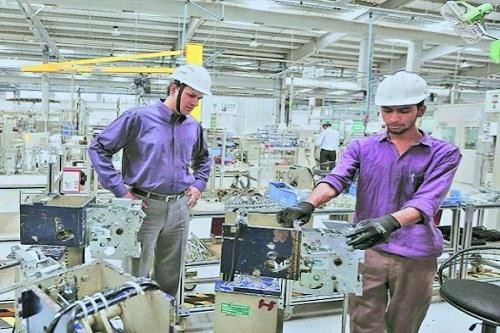Key issues need to be resolved for growth of MSMEs?

Micro, Small and Medium Enterprises (MSME) sector is the second largest employment provider and contributes to almost 30% of the country?s GDP. Realising the importance and potential of the MSME sector, Government has introduced some key schemes to boost the sector. But after two years there are some important issues that are posing new set of challenges for the industires which need to be addressed and resolved for the growth of MSME sector, said sources in industry while talking to The Hitavada.
Increased Raw Material Price: There are many MSMEs which are ancillaries to major industries and there are many which supply their products to the various Government organisations. Due to sudden escalation in the prices of raw materials like steel, iron ore, aluminium, copper, plastic, PVC, paper and chemicals many such MSMEs are finding it difficult to fulfil their orders as per the older rates. When the MSMEs were awarded the work/tender, the prices of raw materials were less but due to a steep hike of almost 35% to 40% in the prices, the rates at which the MSMEs were required to provide the finished
products have become unviable and the major industries and Government organisations should revise the price list and allow MSMEs to provide the products at newer rates as per the market situation, sources in industry said.
The Ministry of MSME in coordination with concerned Government departments and PSUs should address this critical issue on priority as already the MSMEs are facing a crunch in their working capital.This will provide a great relief to the MSMEs in fulfilling their order and also to keep their operations afloat.
Inflated Electricity Bills: During the pandemic lockdown phase, the electricity consumption especially of HT users were at an all time low but gradually as every sector started to open up, the electricity demand gradually rose.
For example: MSEDCL during the first phase of the lockdown gave the option of choosing to lower the demand of electricity online to each industry which benefitted industries having staggered working or those which had temporarily shutdown their operations getting much lower electricity bills. But in the second phase of lockdown there was unambiguity which was clearly an issue for industries. The MSEDCL to recover the arrears also gave an option of payment through instalments and discounts on timely payments to industries.
But the industrial sector especially many MSMEs due to the subsequent lockdowns and restrictions suffered a lot and added to it the inflated power bills increased their woes further. Also, dilly-dallying on the part of Government in extending the electricity subsidy scheme to the industries located in Vidarbha and Marathwada is also affecting the small industries to a great extent, sources added.
Increase in supply chain and logistics cost: The increase in oil rates globally and the ongoing Russia-Ukraine war has increased the freight cost to a great extent, thus increasing the prices of the end products.
Increased raw material prices and more than four times the increase in ocean freight charges and similarly a steep hike in the fuel charges has shot up the prices of goods thereby putting a burden to industries as well as the end users. “Global disruptions combined with scarcity of products and high logistics cost are some reasons of increased inflation”, opined industry experts.
Bank Guarantee: Bank guarantees issued by private or co-operative banks should be accepted by PSUs and corporates. At present some of the PSUs accept the bank guarantees of some select banks only and that too Government banks but majority of the industries have their accounts with private and co-operative banks. Accordingly, bank guarantees of all banks should be accepted which would facilitate „Ease of Doing Business?.
